David Rosenberg, a renowned economist, predicts that the US economy will enter a recession in six months even though the effects of the Federal Reserve’s rate-hiking cycle have not yet completely manifested.
The head of Rosenberg Research & Associates gave a somber economic forecast that touched on China, credit card debt, central bank strategy, and analogies to 2008.
Below are some of the “highlights” of his forecast.
If I’m not mistaken, we’ve had the biggest interest rate shock since 1981.
1982, which was not a slight recession by the way, came after 1981. The lasting effects of the fiscal stimulus, which is now in the rearview mirror, have dulled some of that impact.
One of the Fed’s most aggressive tightening campaigns ever, the Fed’s 11 interest rate increases do not augur well for the upcoming months, according to economists.
I will be open-minded about the no-landing and soft-landing and will retract my apology if the recession is still being discussed by the first quarter of the next year. I am ready to give it a little over a year. I will be the one yelling uncle if my call does not prove prophetic by then.
Interest rate shocks, rather than fiscal shocks, were the main source of the majority of these recessions [since World War II]. In eleven of the last fourteen rate-hiking cycles, the economy experienced a recession. It was not a coincidence, either. Midway through the 1960s, the 1980s, and the 1990s, the Fed refrained from hiking rates to the point where the yield curve inverted, the bond market’s signal to the Fed that it had gone too far. This Fed essentially ignored it or accepted it as a necessary price for fighting inflation and maintaining credibility.
What happened with subprime mortgages 15 years ago has simply been substituted with credit cards. This is how a recession begins: with a sizable decline in credit quality in one specific asset class. At the moment, you can see this happening with credit cards, and it’s not trivial even though it’s not with residential mortgages like it was in 2008.
I believe it will take a miracle for us to get out of this small recession.
We had a significant interest rate shock, but we haven’t yet fully assessed its effects. Student loan relief, which has been accomplished, and stimulus cheques totaling more than $2 trillion have both mitigated some of this. On top of that, China appears to be entering some kind of recession. Deflation is being exported to the rest of the world, and it has undoubtedly already entered a structural slowdown that is rubbing up against a cyclical slowdown.
Those who predicted a recession should exercise a little more patience. All the fiscal stimulus has obscured the issue, but as you can see, it has an expiration date and will begin in fact this month and next month. Although I’m aware that everyone else is giving up, I’m not changing my decision. In 2007, they took the same action. Although the recession began in December 2007, the NBER did not even declare it until another 12 months later.
Whether Rosenberg is right or wrong with his prediction, there is no getting around the facts that he quotes and the points he makes. The solution to staying afloat and solvent never seems to change – invest in what holds value over time.




